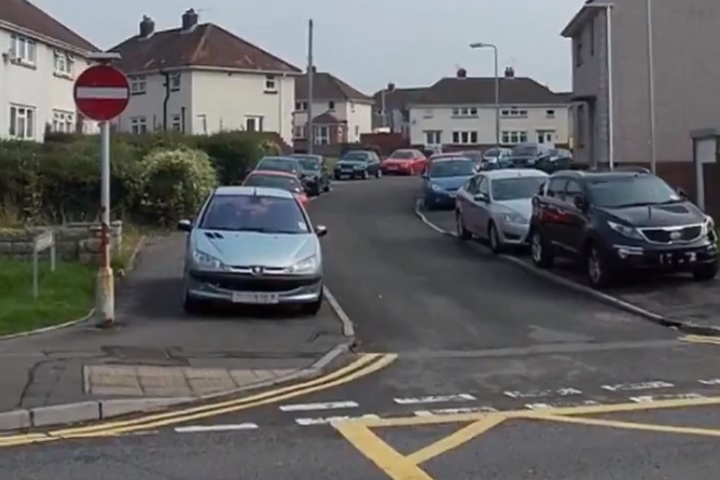
The Transport Committee has launched a new inquiry to explore the problems of pavement parking in England, and consider possible solutions.
Announcing the inquiry on 2 April, the Committee said pavement parking ‘creates real problems’ for those with visual difficulties, who use mobility aids, or need to navigate footpaths with children.
The Committee defines pavement parking as when ‘one or more wheels of a vehicle are on the footpath’ – adding that the Government ‘has not taken any action on this issue in recent years’.
The Committee is calling for written evidence relating to:
- The impact of pavement parking
- Enforcement of pavement parking offences
- Reform of traffic regulation orders needed to deal with pavement parking
Lilian Greenwood, chair of the Transport Committee, said: “This is an area where some people’s actions cause real difficulties for others.
“Parking on pavements risks the safety of all groups of people from the littlest to the oldest, with differing needs.
“While we’re also inquiring into active travel – how we get more people to get into walking and cycling – we need to make sure it’s safe to take to the streets.
“We want to hear from the public about the difficulties this presents and the solutions on offer.”
At present, a mix of criminal and civil sanctions are available to police and local councils to enforce restrictions on pavement parking on private or commercial drivers.
Parking on footways or pavements was banned in London in 1974, and is prohibited for large goods vehicles across England.
In Scotland, a national ban on pavement parking appears close, after proposals received backing from Holyrood.
On 7 March, the Scottish Parliament’s Rural Economy & Connectivity Committee announced its support for the Transport (Scotland) Bill, which includes changes to pavement parking restrictions.
The RAC says that while pavement parking can be a ‘major hindrance’, the case for an outright ban is ‘not so clear cut’.
Nicholas Lyes, RAC head of roads policy, said: “There is no doubt that selfish parking that blocks pavements can be a major hindrance and a danger to pedestrians and vulnerable road users, and we’d support any move that prevents this sort of activity.
“The case for an outright ban, however, is not so clear cut.
“There are instances, particularly on Britain’s many narrow residential streets, where drivers believe they are doing the right thing by putting a wheel or two on the kerb so as not to impede road access for other vehicles and emergency services, while also making sure they leave enough space for people to use the pavement, especially wheelchair users and those with buggies.”
The closing date to submit written evidence to the Transport Committee inquiry is 14 May.
Not to sound actually pushed someone in a wheelchair?
Before people start crying about cars blocking pavements, start crying about the state of pavements themselves.
And no, I’m not necessarily on about vehicle damage, I’m on about dropped kerbs – or how some attempts are made at putting in dropped kerbs but are as much use as a railway sleeper at times.
Are we additionally to prohibit lampposts and railings?
David Weston, Corby
--10